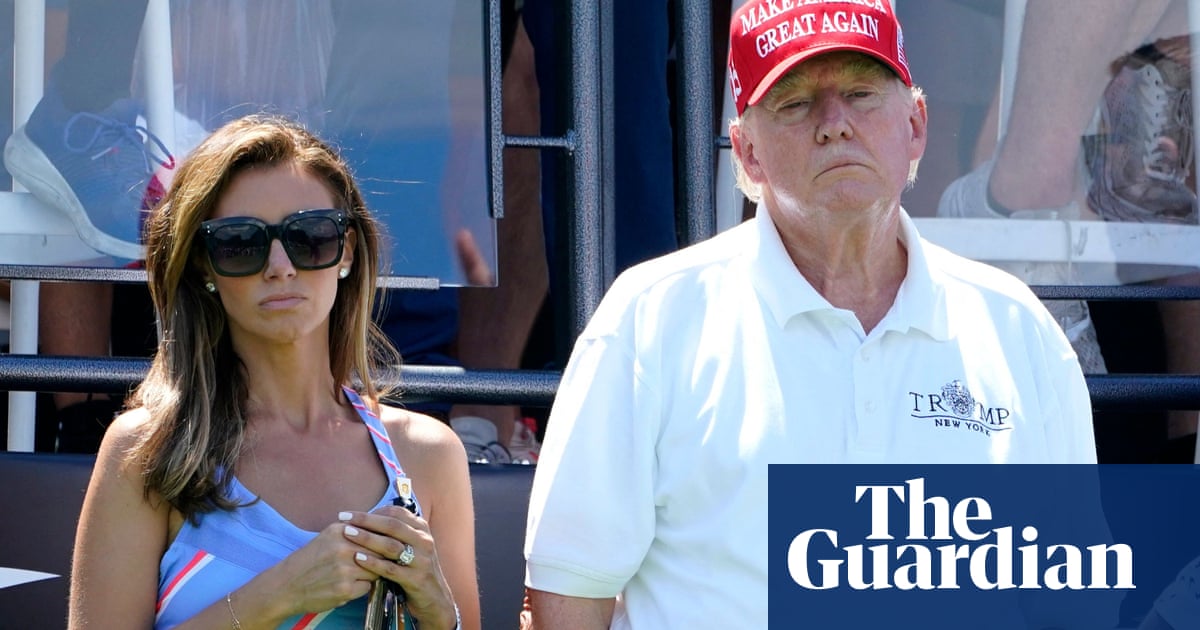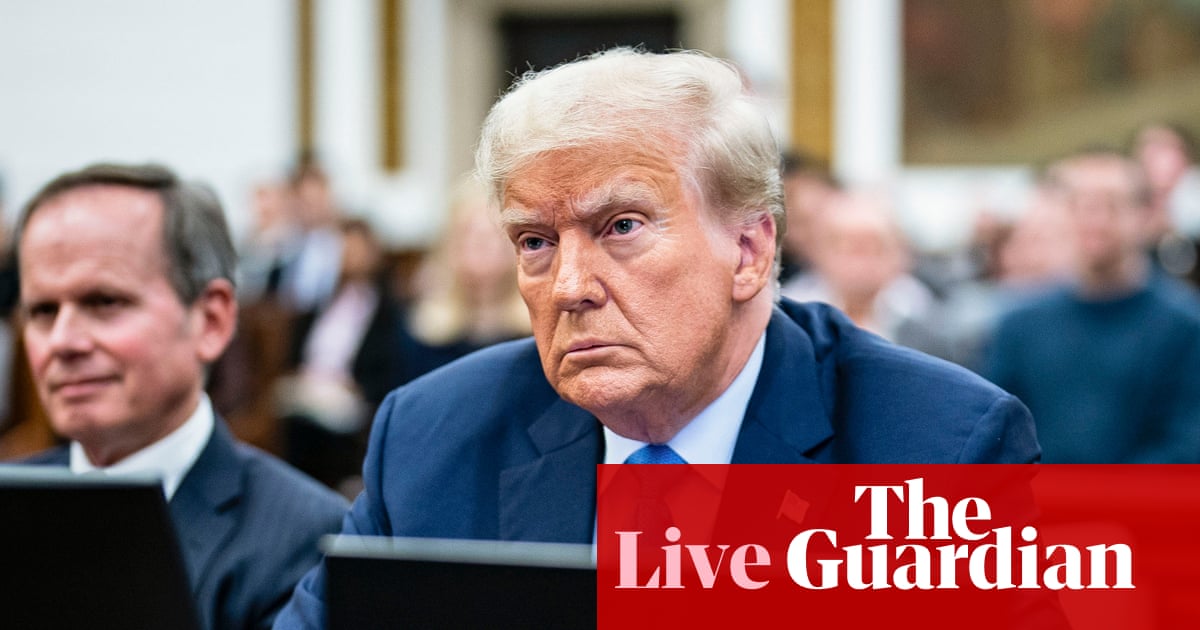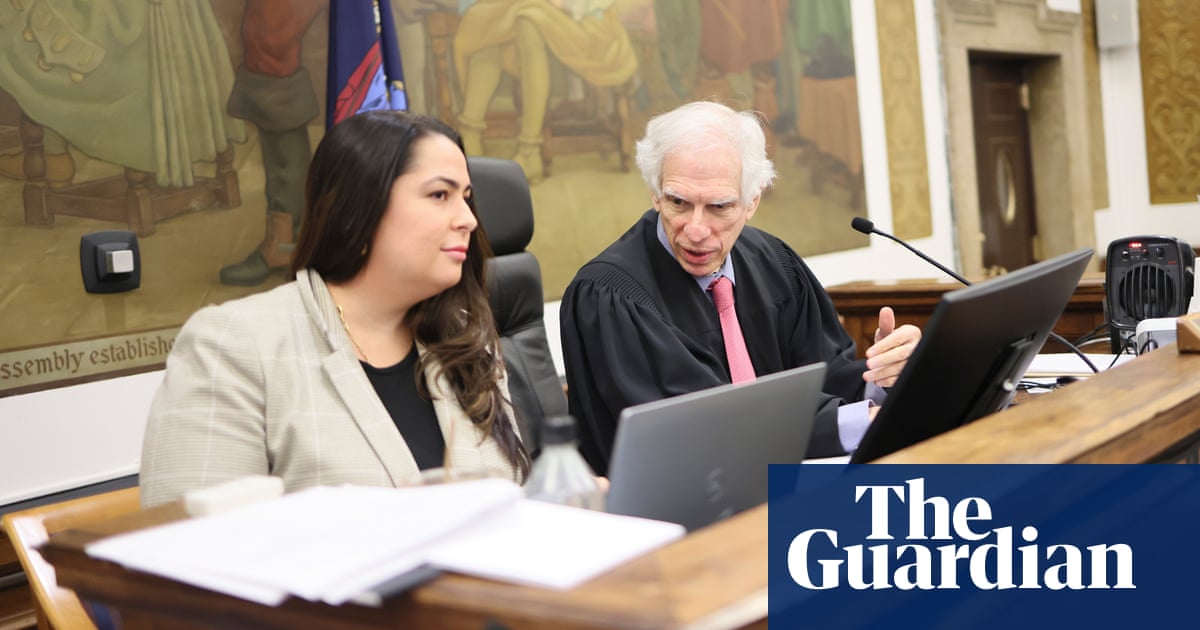
Donald Trump’s legal spokesperson has predicted that forthcoming early trial dates in the former president’s four criminal cases will not hold, and that his multiple cases could clash with the final stages of the 2024 presidential election campaign and voting.
Alina Habba told the Fox News Sunday show that prosecutors’ plans for fast turnarounds in Trump’s two federal criminal cases and the state indictments in New York and Georgia amounted to “unrealistic theatrics”. She said that each of the trials would last from four to six weeks, raising the threat of overlapping schedules.
“No judge is going to say you can be in two trials in two different states, because a lot of these overlap. They are going to have to go into October, November of next year,” she said.
Habba, who acts as general counsel for the Trump-supporting political fundraising group Save America PAC, claimed that the possibility of extending the trials right up to election day, 5 November, next year, was “by design”.
She claimed, without providing evidence, that Fani Willis, the district attorney of Fulton county in Georgia who is leading the prosecution of Trump over his attempts to overturn the 2020 election result in Georgia, and Jack Smith, the special counsel who has spearheaded the two federal indictments, were engaged in a “coordinated effort” with partisan motive.
“We know this is intentional – it’s to tie [Trump] up, it’s definitely political,” Habba said.
The potential collision between criminal justice calendars and the upcoming presidential election is already complicating both legal and political realms. Trump is leading the pack of Republican presidential hopefuls by a commanding margin, with his popularity among rightwing Republicans only increasing with each indictment.
At the same time, he is the first American president to be charged with a criminal offense, and now faces 91 charges across the four indictments. They include the two federal cases, into alleged election interference and hiding confidential documents at his home in Mar-a-Lago after leaving office, the Manhattan case over an alleged hush-money payment during the 2016 election, and the Fulton county, Georgia, case.
Last week Trump became the first former president to have his mugshot taken – an ignominy which he instantly turned to his advantage by claiming to have raised more than $7m in donations with it.
On Monday, one of Trump’s 18 co-defendants in the Fulton county case, his former White House chief of staff Mark Meadows, will appear in federal court for the first time. Meadows will argue before Judge Steve Jones that his case should be removed from the Fulton county court and transferred into the federal arena.
He claims that the behavior for which he has been indicted – including his participation in the notorious call in which Trump exhorted the Georgia secretary of state, Brad Raffensperger, to “find” enough votes for him to win the state – was conducted as part of his official White House duties.
Other co-defendants will be watching Monday’s hearing closely and several, including Trump’s former lawyer Rudy Giuliani, are also expected to request a shift into federal court.
Wrangling over the timing of the multiple trials is already well under way. The judge in the Fulton county case, Scott McAfee, has agreed to grant one of the 19 defendants, the lawyer Kenneth Chesebro, a quick turnaround in his case, with the trial to start on 23 October.
On the back of that, Willis has asked the court to set the same date for all defendants, Trump included. Trump’s legal team has objected to the rapid timing of trial and moved to sever his case from Chesebro’s.
Trump is also locking horns with the special counsel. Smith has asked for a speedy trial for the election subversion case, citing substantial public interest in it and proposing a 2 January 2024 start date; Trump lawyers countered by suggesting April 2026.
Trump’s indictments were described at last week’s first Republican presidential debate, which the former president sat out, as the “elephant not in the room”. Six of the eight presidential hopefuls on the stage raised their hands when asked if would they still support Trump as the Republican presidential nominee were he to be criminally convicted.
On Sunday, Chris Christie, the former governor of New Jersey, told ABC News’ This Week: “We can’t have a convicted felon as our nominee for president, and expect to win. The most amazing part of the debate to me was the idea that the majority of my competitors think you can have a convicted felon as our nominee and win.”
Mike Pence, who certified the election results after the insurrection of 6 January 2021 despite pressure from Trump not to do so, was asked on CBS News’ Face the Nation why he had indicated at the debate that he would still support Trump even if he were convicted. Pence said he had signed a pledge to support the Republican nominee as a condition of his debate participation.
But Pence then added: “I remain confident – more confident after Wednesday night – that the nominee will not be the former president.”
Nikki Haley, Trump’s former ambassador to the United Nations and another Republican presidential hopeful, said her former boss is a friend but he “is going to spend a lot of time in the courtroom and not on the campaign trail. We have to have a new generational leader … we have to win this.”
Meanwhile, fringe Republican candidate Vivek Ramaswamy on NBC’s Meet the Press floated an outlandish suggestion that he would have “pushed through” election law reforms before certifying the results of the 2020 election. He said he would have demanded that legislation requiring single-day voting, paper ballots and government-issued IDs matching voter files to be signed into law first.
David James, press secretary for Pence’s campaign, said Ramaswamy’s idea was “both shocking and concerning in its lack of understanding of how our system of government works”, NBC reported.











